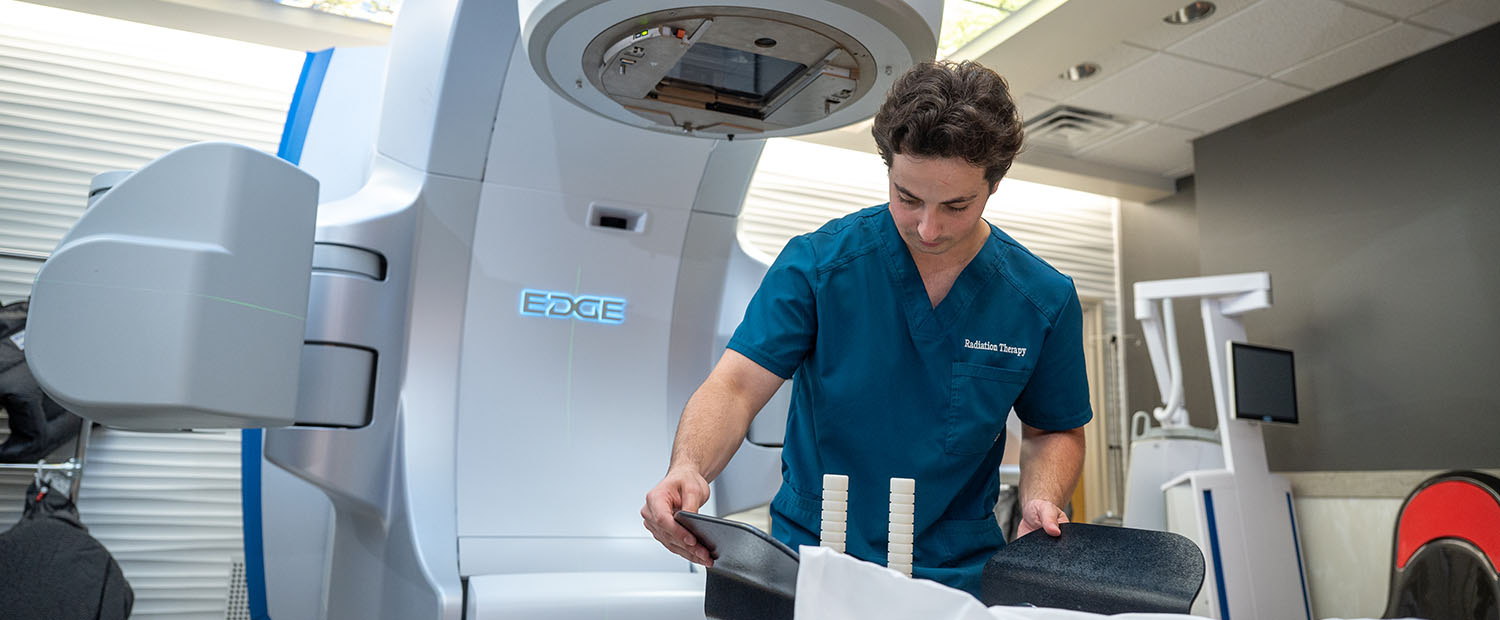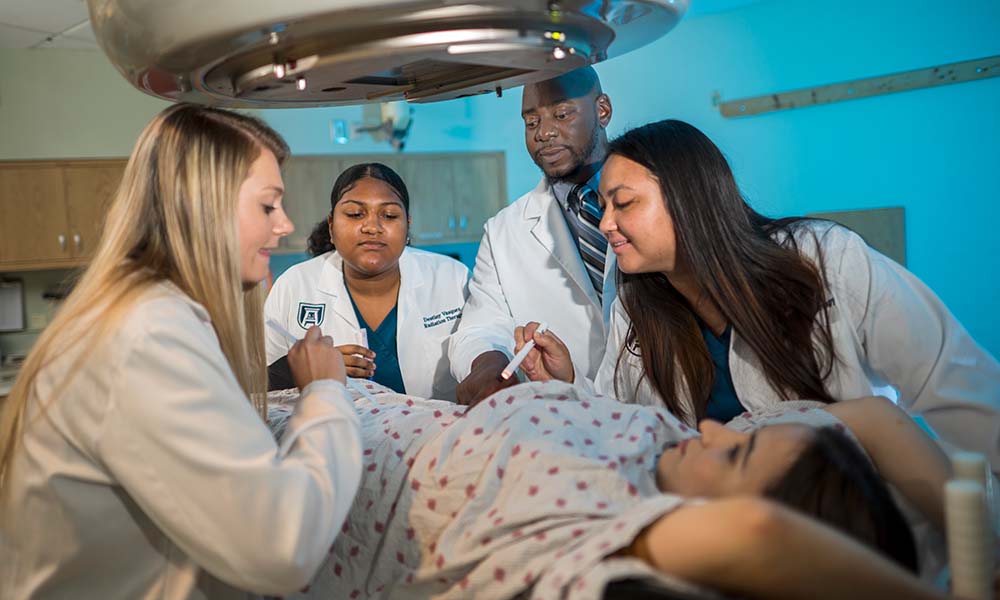
Radiation Therapy
High Tech Meets High Touch
Radiation Therapy is the use of high-energy ionizing radiation to treat cancer and some benign diseases. The goal of radiation therapy is to damage the cancer cells’ DNA and destroy its ability to divide and grow, while sparing the surrounding normal tissue.
This may be accomplished using highly sophisticated equipment to deliver external beam radiation or using brachytherapy in which radioactive sources are placed inside the patient on a temporary or permanent basis. Radiation Therapy may be used to cure cancer or to relieve pain and other symptoms associated with cancer.
Contact Us
Radiation Therapy
Health Sciences Campus
706-721-4179

What it Means
The Role of a Radiation Therapist
Radiation Therapists have continual contact with patients throughout the course of their treatment, educating them about treatment, simulation procedures, and potential radiation side effects. Radiation Therapists monitor and observe each patient's clinical progress and provide emotional support. Radiation Therapists are responsible for accurately interpreting, verifying, administering and recording the treatment prescribed by a Radiation Oncologist.
As a member of the cancer management team, Radiation Therapists work closely with Radiation Oncologists, Oncology Nurses, Medical Physicists, Medical Dosimetrists, Social Workers, and Nutritionists, as well as Surgical Oncologists and Medical Oncologists (chemotherapy).
Radiation Therapists
Compassion
Integrate scientific knowledge, technical competence and patient interaction skills to provide safe and accurate treatment with compassion.
Anatomy
Demonstrate an understanding of human anatomy, human physiology, pathology and medical terminology.
Radiation Safety
Possess, use and maintain knowledge about radiation protection and safety.
Liaison
Are the primary liaison between patients and other members of the radiation oncology team.
Improvement
Participate in quality improvement processes and continually assess their professional performance.
Critical Thinking
Think critically and use independent, professional and ethical judgments in all aspects of their work.
Career Opportunities
Career opportunities for radiation therapists are excellent, with jobs available in all parts of the country. Radiation therapists can be employed by hospitals, universities, clinics, or vendors who market radiation oncology equipment. Some radiation therapists work in independent or contract temporary positions and travel to facilities throughout the nation.
As the U.S. population grows and an increasing share of it is in older age groups, the number of people needing treatment is expected to increase and spur demand for radiation therapists.
Licensure Disclosure Statement
The Department of Allied Health Professions has determined that the required classes and educational activities of this academic program will qualify a graduate of this program to take the national ARRT examination to obtain Registered Radiation Therapist, RT(T)(ARRT) credentials. The department has determined this program satisfies the requirements of all states and territories for the Registered Radiation Therapist, RT(T) or state licensure. Visit the American Society of Radiologic Technologists to determine the requirements of your state or territory.
Class of 2024

Class of 2025
